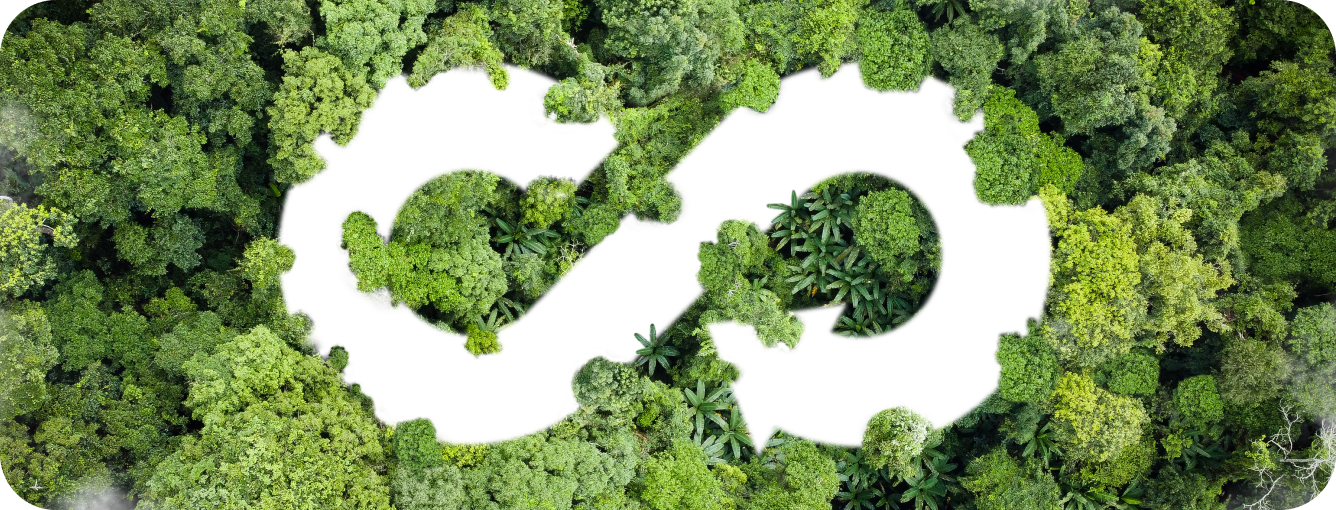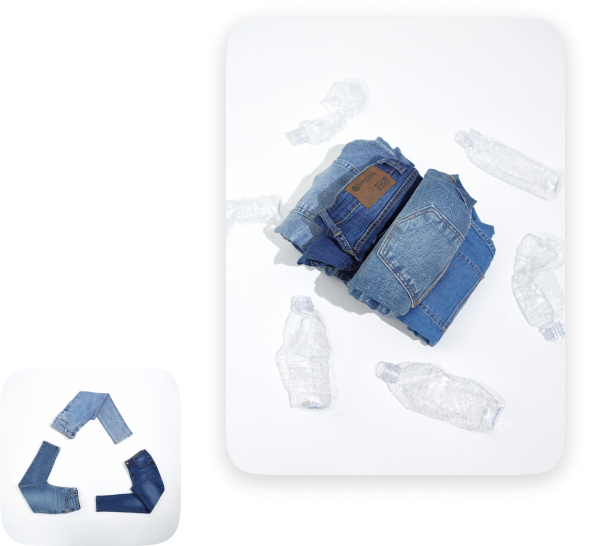Environmental
Resource recycling

-
Resource Circulation Policy
Hyosung TNC adopts an enterprise-wide approach to resource circulation in order to conserve the Earth's resources for the future generation. We establish and implement policies at each stage, from production and distribution to consumption, to efficiently utilize resources, minimize waste generation, and promote the circular use of generated waste. Our goal is to contribute to the creation of a sustainable circular economy.
Raw Material and Water Resource Reduction Activities
We minimize a new purchases through optimal inventory and usage management of raw materials. We reduce water consumption by minimizing unnecessary water usage in the production process. Every year, we set targets for water usage by source, such as groundwater and industrial water, and make an efforts to reduce usage compared to the targets.

Production Using Recycled Fiber and Fabric
Hyosung TNC has obtained GRS certification for Nylon and Polyester recycled fibers and fabrics. GRS certification verifies the use of recycled materials in raw fiber materials and clothing production. We are actively participating in international efforts to reduce resource usage by using recycled materials.

Sustainable Purchases in Consideration of Resource Conservation
Hyosung TNC follows a green purchasing policy that considers resource conservation and consistently practices sustainable purchasing.

Resource Circulation through Waste Recycling
Hyosung TNC does not dispose of defective chips and raw yarn produced in the process as waste but processes them into a sellable form and resells them to reduce waste and contribute to resource circulation.

Development of Resource Circulation Products and Technologies
Hyosung TNC is driving innovation in sustainable products by transforming disposable waste, a major contributor to environmental pollution, into green products. We are also developing biodegradable products and resource recycling technologies. In the future, Hyosung TNC will take the lead in addressing climate change and fostering the sustainable business ecosystem through generous investments in research and development for sustainable products and technologies.

Donation of Goods to Hyosung’s First Goodwill Store
Goodwill Store operates as a social enterprise model that focuses on "people, businesses, and the environment." It runs over 2,800 stores in 15 countries, including the United States and Canada, providing employment opportunities for over 200,000 individuals, including people with disabilities and vulnerable populations. Through this initiative, Goodwill Store contributes to the economic independence of vulnerable populations. It uses the proceeds from the sale of donated goods to create jobs for people with disabilities and to provide vocational education and training. Additionally, it promotes resource circulation. Hyosung opened the first "Goodwill Store” in Korea back in October 2013 in Eunpyeong-gu, Seoul. The company has installed Goodwill Store donation bins at its headquarters and various workplaces, allowing employees to donate items that are then delivered to the store.

